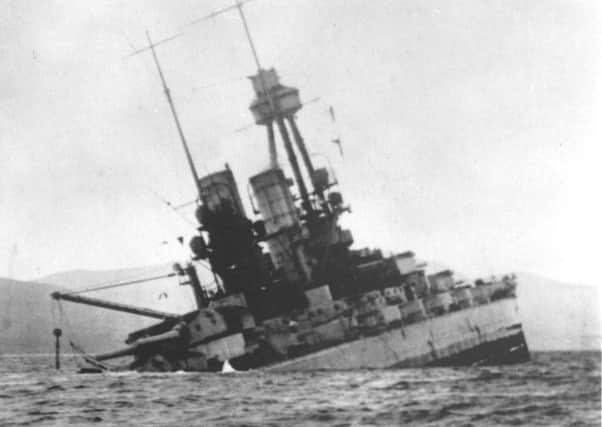Appeal made for Scapa Flow protection to save habitats


Joanne Porter, an associate professor at Heriot-Watt university, and Dr Clara Mackenzie, an aquaculture researcher at the University of Stirling, say deterioration of the site is a major challenge faced by local, recreational and scientific diving operations.
They said: “June 2019 marks the centenary of the sinking of German WWI warships in Scapa Flow. We should mark this important moment in history by drawing attention to these precious marine habitats so they may be protected for hundreds of years to come.
Advertisement
Hide Ad“The marine environments of northern regions like the Orkneys face a serious threat from global climate change due to the accelerated rates of change occurring in polar regions.
“However, a lack of research on impacts has meant that communities face huge challenges in finding ways to react and adapt to these problems.
“Dive operators, researchers and volunteers continue to work together to document these historic relics and their ecological associations.”
At the end of the First World War, the captured German warship fleet, comprising 74 vessels, was interred in Scapa Flow, a sheltered body of water between the Orkney Mainland and the South Isles.
In June 1919, as its fate was debated by the allied powers, Rear Admiral Ludwig von Reuter gave the order to his German crews to scuttle all ships to prevent the flotilla falling into enemy hands.
A total of 52 ships were successfully sunk, leaving Scapa Flow an undersea graveyard of WWI German shipwrecks.
Advertisement
Hide AdDr Porter and Dr Mackenzie, both marine biologists, say the major naval event “set the wheels in motion for the creation of a world-renowned dive site of considerable historic and environmental value”.
Writing in the online academic magazine The Conversation, they said it is “a graveyard full of life”.
Advertisement
Hide AdThey said: “The waters teem with an abundance of sea creatures including crab, lobster, starfish, sea urchin and a variety of fish species.
“Recent surveys around the Orkney wrecks have also reported rarities such as the fan mussel and the common skate, now internationally scarce.
“As well as being habitats where marine species can establish and flourish, these wrecks may also be some of the most biodiverse habitats of northern waters.”
One example, they say, is the Karlsruhe, a 112-metre German light cruiser, once operated by a crew of 475 men, now lying abandoned on its starboard side in 25 metres of water in Scapa Flow.
The biologists write: “Marine biologists believe wrecks like the Karlsruhe may be instrumental in creating ideal hydrodynamic conditions for vital habitats like horse mussel reefs.
“Wrecks may help to produce good feeding conditions, that is, sufficient water flow to maintain a supply of algal feed but not too vigorous that animals are unable to filter feed, and natural breaks and eddies in high current flow that allow for the settlement of mussel larvae on the sea floor.
“These reefs also provide a number of beneficial ecosystem ‘services’ including the provision of nursery grounds for commercial fisheries species.”